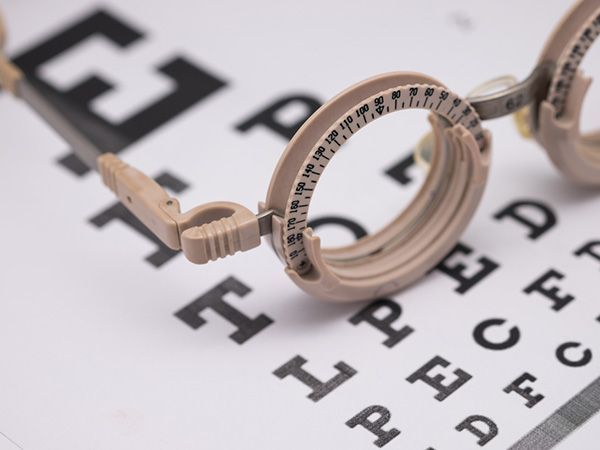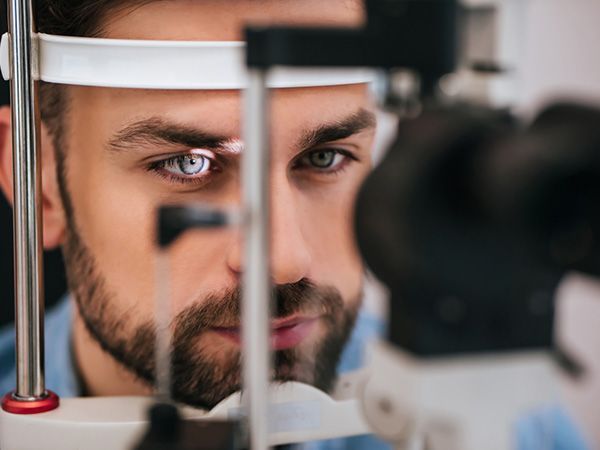

Also known as dry eye syndrome or dry eye disease, dry eye is a condition that occurs when the eyes do not make enough natural tear film or the tears evaporate far too quickly. This causes your eyes to feel irritated, scratchy and as the name of the condition suggests, dry.
The natural moisture in our eyes is essential to keep them healthy and functioning properly. This tear film is much more complex than simply water. Instead, tear film has three basic layers. These are water, oil, and mucus. If there is an issue with any of these layers a patient could develop dry eyes. The tear film is made by a small gland located in each eye known as the Meibomian glands. This gland could be interrupted or blocked, or alternatively the tear film may drain out of your eyes too quickly. Either way, the symptoms are the same.
Risk Factors for Dry Eye
There are some factors that make someone more likely to suffer from dry eye. People who have an increased risk of developing dry eye include people who:
are over the age of 60. This is because the gland responsible for tear production naturally deteriorates with age. Your eyelids are also less effective at spreading tear film across your eyes when you blink.
suffer from certain medical conditions. These include thyroid disorders, lupus, diabetes, rheumatoid arthritis, Sjogren’s syndrome, and scleroderma.
take specific medications including some antidepressants, hormone replacement therapy drugs, decongestants, antihistamines, birth control, and drugs for high blood pressure and acne.
have had previous laser eye surgery. Many people undergo laser eye surgery to enable them to see clearly without using glasses or contact lenses. However, dry eyes are a common temporary side effect of laser eye surgeries such as PRK or LASIK.
spend a lot of time in a windy, smoky or dry atmosphere, such as an air-conditioned office. This can cause tear film to evaporate too quickly.
spend a lot of time looking at screens such as laptop or tablet screens. This is because they blink less often than normal. People who drive for work or spend a long time behind the wheel can also develop dry eye.
wear contact lenses.
are pregnant. Hormones are thought to play a part in changes in tear film production.
Symptoms of Dry Eye
In addition to the dry feeling from which the condition takes its name, there are also a number of other symptoms of dry eye. These include but are not limited to:
feeling as though you have something lodged in your eyes
stinging, burning and general soreness
heavy, tired feeling eyes and eyelids
blurred vision
excessive watering which causes the oily later of the eyes to become diluted, causing them to dry out
eyes that feel ‘stiff’ and difficult to move around
If you experience any of the symptoms listed above, there is a good chance that you have dry eye and should seek the advice of an experienced eye doctor.
Treatment for Dry Eye
Fortunately, dry eye is rarely a serious problem and it can usually be treated easily. There are several different treatment options available, and your eye doctor will determine which is likely to be most effective for you. This will largely depend on the cause of your dry eye. For example, if you are experiencing dry eye because you are on a certain medication that lists dry eyes as a side effect, your eye doctor may recommend that you speak to your regular doctor about the possibility of switching to a new drug. In the meantime, you may be given artificial tears to ease your discomfort.
Most patients start the treatment process using eyedrops. These are designed to mimic tear film and/or stimulate the production of natural lubrication. Exactly what dose you will need and how often you will need to use them will depend on the severity of your symptoms. If eyedrops are proving to be ineffective, there are other topical solutions including gels and ointments that you may be recommended to try.
There are a number of oral medications that some patients find helpful. These stimulate tear production too. There are also some drugs that can reduce inflammation of the eyelids that can prevent oil glands from secreting oil into your years.
There are some more extensive treatments that can be performed in-office that may also be an option. One is a thermal treatment that stimulates and clears the blocked glands, allowing them to function normally again. This is completely painless and highly successful. If your tear film is draining too quickly you may be recommended to try a solution known as punctual plugs. These are tiny devices placed into the drainage channels in the eyes to block tear duct drainage.
We are delighted to be able to offer comprehensive care for sufferers of dry eye disease, from diagnosis to successful treatment helps to alleviate your symptoms, all performed at our offices located in Perry, GA. Learn more about the services that we offer, click here or contact us at 478-412-4200 for more information!






